The Pre-Art Therapy program prepares students for graduate programs in art therapy or art therapy and counseling. With a Bachelor of Arts in Art or Psychology and a Pre-Art Therapy Concentration, graduates can continue toward certification as art therapists by attending a graduate program in art therapy. Some graduate programs in art therapy also prepare students to apply for licensing as a counselor. A student must complete a graduate art therapy program and supervised clinical experience to receive certification from the Art Therapy Credentials Board.

Pre-Art Therapy (Art or Psychology With Concentration)
Bachelor of Arts
An art therapist uses the creative process of making art to improve and enhance the physical, mental, and emotional well-being of people of all ages. In this profession, practitioners integrate the fields of human development, visual art (i.e., painting, drawing, sculpting), and the creative process with models of counseling and psychotherapy.
Art therapists have flourishing careers in the medical, educational, social services, and private practice settings. Art therapy can be one of the most challenging and yet rewarding careers. An art therapist often designs art projects that assist clients in becoming more optimistic about their future while utilizing their knowledge of psychology to assist them in setting and accomplishing goals.
Plan of Study
The Pre-Art Therapy Concentration includes 57 credit hours in art and 15 credit hours in psychology. In addition, students must complete 50 hours of Service Learning.
Prerequisites required by the American Art Therapy Association (AATA) for entry into a master’s program include:
- At least 18 credit hours of studio art courses.
- At least 12 credit hours of psychology courses, which must include courses in developmental psychology and abnormal psychology.
BACHELOR OF ARTS IN ART: PRE-ART THERAPY CONCENTRATION
Total credit hours: 128
Required Curriculum
Core and General Education for Bachelor of Arts degree (38-39 credit hours)
Art Courses (21 credit hours)
ART 101 Drawing I
ART 102 Design Fundamentals I
ART 103 Three Dimensional Design
ART 214 Ceramics I
ART 223 Watercolor I
ART 302 Introduction to Art Therapy
ART 303 Sculpture I
Psychology (15 credit hours)
PSY 110* General Psychology
PSY 210* Developmental Psychology
PSY 350 Abnormal Psychology
PSY 411 Personality Theories and Dynamics
PSY 470 Introduction to Counseling
* Students majoring in Art can use courses marked with an asterisk (*) to fulfill both general education and major requirements.
Learning Outcomes
DEPARTMENT OF ART LEARNING OUTCOMES
PRE-ART THERAPY
- Students can demonstrate understanding of and reverence for the aesthetic expressions of humans from different historical periods and cultures.
- Students have developed their technical skills, creative abilities, and knowledge of studio materials.
- Students can write papers demonstrating critical thinking, intellectual analysis, and effective writing skills.
- Students have developed knowledge or art as a profession. (BA-Art)
- Students have developed knowledge of art history as a profession (BA-Art History).
DEPARTMENT OF PSYCHOLOGY LEARNING OUTCOMES
PRE-ART THERAPY
Knowledge Base of Psychology
Students will demonstrate familiarity with the major concepts, theoretical perspectives, empirical findings, and historical trends in psychology.
Learning Outcomes:
- Characterize the nature of psychology as a scientific discipline.
- Demonstrate knowledge and understanding representing appropriate breadth and depth in selected content areas of psychology.
- Explain major perspectives of psychology (e.g. behavioral, biological, cognitive, evolutionary, humanistic, psychodynamic, and sociocultural).
Research Methods in Psychology
Students will understand and apply basic research methods in psychology, including research design, data analysis, and interpretation.
Learning Outcomes:
- Explain different research methods and statistical analyses used by psychologists.
- Design and conduct basic studies to address psychological questions using appropriate research methods and statistical analyses.
- Follow the APA Code of Ethics in the treatment of human and nonhuman participants in the design, data collection, interpretation, and reporting of psychological research.
Critical Thinking and Communication Skills in Psychology
Learning Outcomes:
- Use critical thinking effectively.
- Demonstrate effective writing skills and oral communication skills in various formats and for various purposes.








